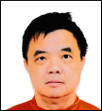The 2018 Executive Committee (EC) Special Election will begin on 1 May to fill one open Ratified Seat, vacated by NXP Semiconductors.
Please refer to the Java Community Process EC Elections page for more information on the Executive Committee Elections.
Please refer to the Executive Committee Information page for more information on the current Executive Committee.
What follows are the qualification statements provided by the candidate for the Executive Committee, along with a brief biography of the person who would serve as the Member's representative on the Executive Committee if elected, and a position statement when one was provided.
| 2018 EXECUTIVE COMMITTEE RATIFIED SEAT CANDIDATE |
Alibaba
|
Qualification for Alibaba (Why Alibaba)
Alibaba started engineering investments on OpenJDK early back to 2010. Most of all the application in
Alibaba are written in Java, with more than billion lines of Java code and more than 10,000 Java developers.
We are in no doubt one of the largest installation base of Java in the world. We customize OpenJDK to meet the
needs of rapidly growing business. Thousands of thousands of JVM instances are running Java every second, serving
huge number of web requests and transacting Alibaba's full spectrum of services, including world's largest online
ecommerce, financial and logistics marketplaces. Alibaba will continue to innovate Java infrastructure technology
based on OpenJDK. We hope to bring our insights and experiences in using Java in super large-scale datacenter to
Java ecosystem by deeply involved in OpenJDK community.
Value and perspective brought to the EC/ Interests in the JCP program (Community)
Alibaba has a strong record of open source and community involvement. We custom-build most of its software based
on rich Java open-source ecosystem and we also contribute them back to community, including jStorm, fastJSON etc.
We have two OpenJDK committers, another one in expert group in JSR 353.
We believe Alibaba sitting on EC would be important to help to ensure Java community, both in terms of
geography and technologies. Given Alibaba's leading role in China, indeed globally, Alibaba is willing to represent
the voices of Java developer in EC discussion in broader way. From technology perspective, as a member of JCP, Alibaba
puts particular focus on ways to advance the role of Java in the web-scale area. We try everything possible to enhance
the Java technology to fulfill our requirements, from underlying JVM runtime, Java middleware, up to different aspects of JEE.
Current and planned participation (JSR's participation on Expert Groups) (Contribution)
Alibaba already built and deployed customized OpenJDK with our specific changes. We optimize OpenJDK for online
e-Commerce applications running on 100,000 servers. Many of these enhancements and improvements are generally applicable
to most workloads, we are planning to cooperate with OpenJDK community and contribute back such changes. Specifically,
we are planning to contribute Java warmup technology (similar to ZingTM ReadyNow) which is already implemented in our
customized OpenJDK version, widely used in Alibaba datacenter as JEP to OpenJDK, moreover, we commit to contribute to
newly launched OpenJDK project loom, our customized OpenJDK version already implemented similar mechanism proposed by
project loom. We believe our experiences on co-routine technology which is already widely deployed and used in Alibaba
datacenter will definitely bring values to OpenJDK.
Alibaba Position Statement (.pdf file)
|

Kingsum Chow
|
Kingsum Chow is the chief scientist of system software hardware co-optimization. He has over 15 years of optimizing
Java performance in collaboration with Appeal, IBM, BEA, Sun and Oracle JVM teams while working at Intel. In 2016,
he joined Alibaba to improve Java performance in the data center. Kingsum has been issued more than 20 patents.
He also has delivered more than 90 papers and presentations. Kingsum appeared four times in JavaOne keynotes and
almost a dozen times in JavaOne and Oracle OpenWorld presentations covering the topic of software performance systems
and optimization. Kingsum received a PhD in Computer Science and Engineering from the University of Washington
in Seattle in 1996.
|
| | |
ABOUT THE JAVA COMMUNITY PROCESS (JCP) EXECUTIVE COMMITTEE
After the Executive Committee (EC) Elections in 2012, the SE/EE and ME Executive Committees were merged into a single Executive
Committee as defined by JSR 355 and the JCP 2.9 Process Document.
In the merged Executive Committee, there are 16 Ratified Seats, 8 Elected Seats and the permanent seat held by Oracle America.
Members serve 2-year terms that are staggered so that 12 of the 24 seats are normally up for ratification/election each year.
The EC members guide the evolution of the Java technologies. The EC
represents a cross-section of both major stakeholders and other members
of the Java Community. Duties are: select JSRs for development, approve
draft Specifications for Public Review, approve Final Specifications,
review TCK appeals, approve Maintenance revisions and possibly defer
some features to a new JSR, approve transfer of maintenance duties
between members and provide guidance to the Program Management Office
(PMO). For more information on the EC, see the Executive Committee Info
page http://jcp.org/en/participation/committee.
2017 EC Elections Results
2017 EC Special Elections Results
2016 EC Elections Results
2015 EC Elections Results
2014 EC Elections Results
2013 EC Elections Results
2012 EC Elections Results
2011 EC Elections Results
2010 EC Elections Results
2009 EC Elections Results
2008 EC Elections Results
2007 EC Elections Results
2006 EC Elections Results
2005 EC Elections Results
2004 EC Elections Results
2003 EC Elections Results
2002 EC Elections Results
2001 EC Elections Results
2000 EC Elections Results
For more information on the JCP, see the JCP Overview page.
Contact the PMO for election questions at pmo@jcp.org